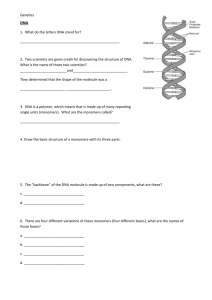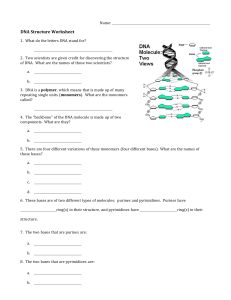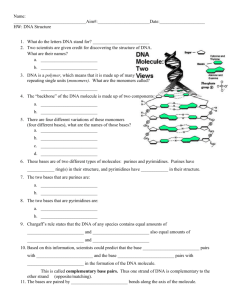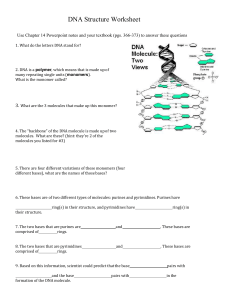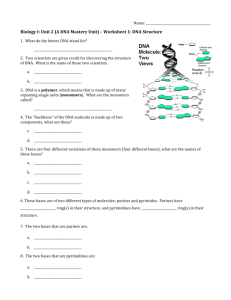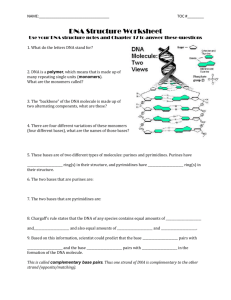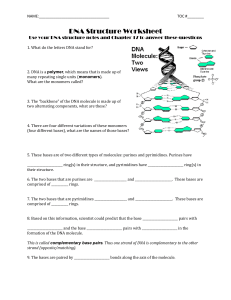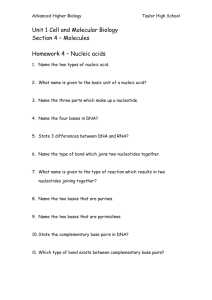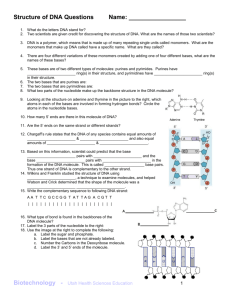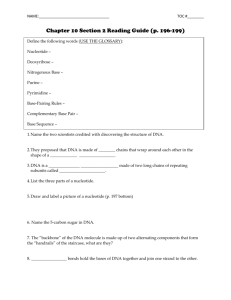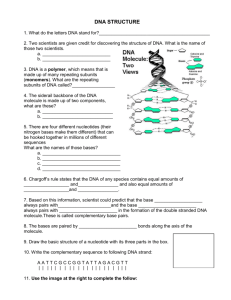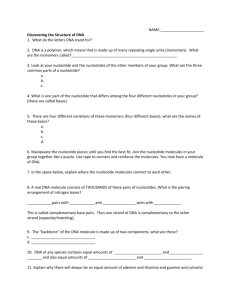DNA Structure Worksheet: Basics & Base Pairing
advertisement
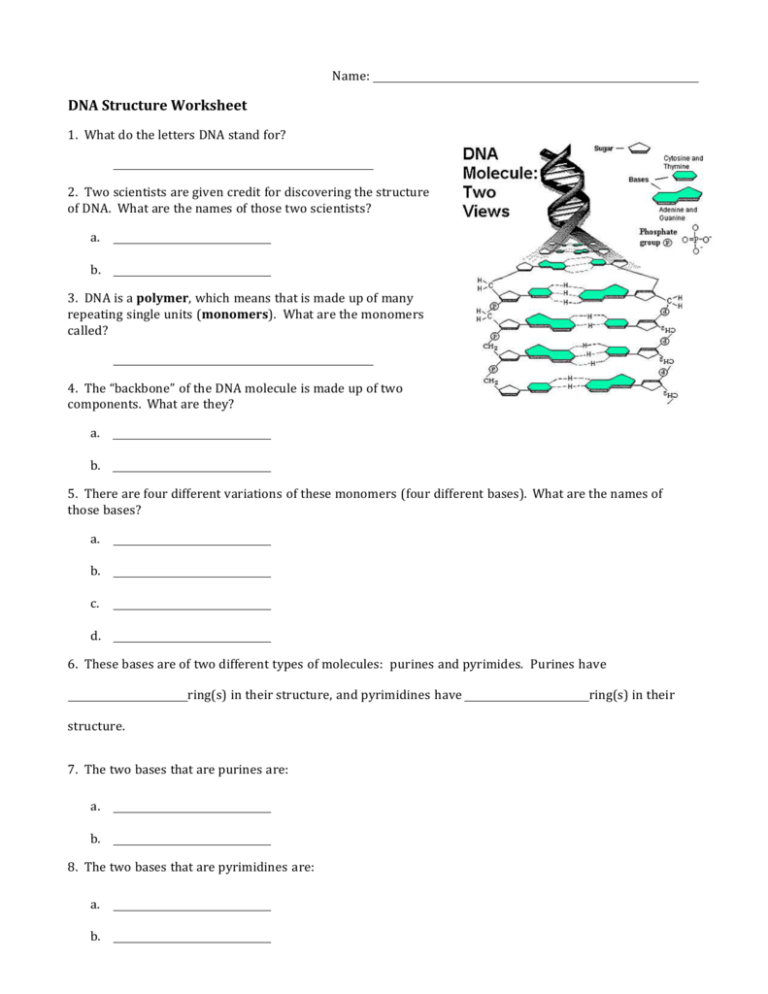
Name: DNA Structure Worksheet 1. What do the letters DNA stand for? 2. Two scientists are given credit for discovering the structure of DNA. What are the names of those two scientists? a. b. 3. DNA is a polymer, which means that is made up of many repeating single units (monomers). What are the monomers called? 4. The “backbone” of the DNA molecule is made up of two components. What are they? a. b. 5. There are four different variations of these monomers (four different bases). What are the names of those bases? a. b. c. d. 6. These bases are of two different types of molecules: purines and pyrimides. Purines have ring(s) in their structure, and pyrimidines have structure. 7. The two bases that are purines are: a. b. 8. The two bases that are pyrimidines are: a. b. ring(s) in their 9. Chargaff’s rule states that the DNA of any species contains equal amounts of _____ and ________________________________and also equal amounts of _________________ and ___________________________________. 10. Based on this information, scientist could predict that the base ______and the base _______pairs with __________pairs with ________________ in the formation of the DNA molecule. This is called complementary base pairing. One strand of DNA is complementary (opposite yet matching) to the other strand. 11. The bases are paired by ___________bonds along the center of the molecule. 12. Maurice Wilkins and Rosalind Franklin studied the structure of DNA using ___________________________________, a technique to examine molecules, and helped Watson and Crick determined that the shape of the molecule was a _________________. 13. Draw the basic structure of a nucleotide with its three parts. 14. Write the complementary sequence to following DNA strand: A A T T C G C C G G T A T T A G | | | | | | | | | | | | | | | | A C G T T | | | | | 15. Use the image below to complete the following: Circle a nucleotide. Label the sugar and phosphate. Label the bases that are not already labeled.
